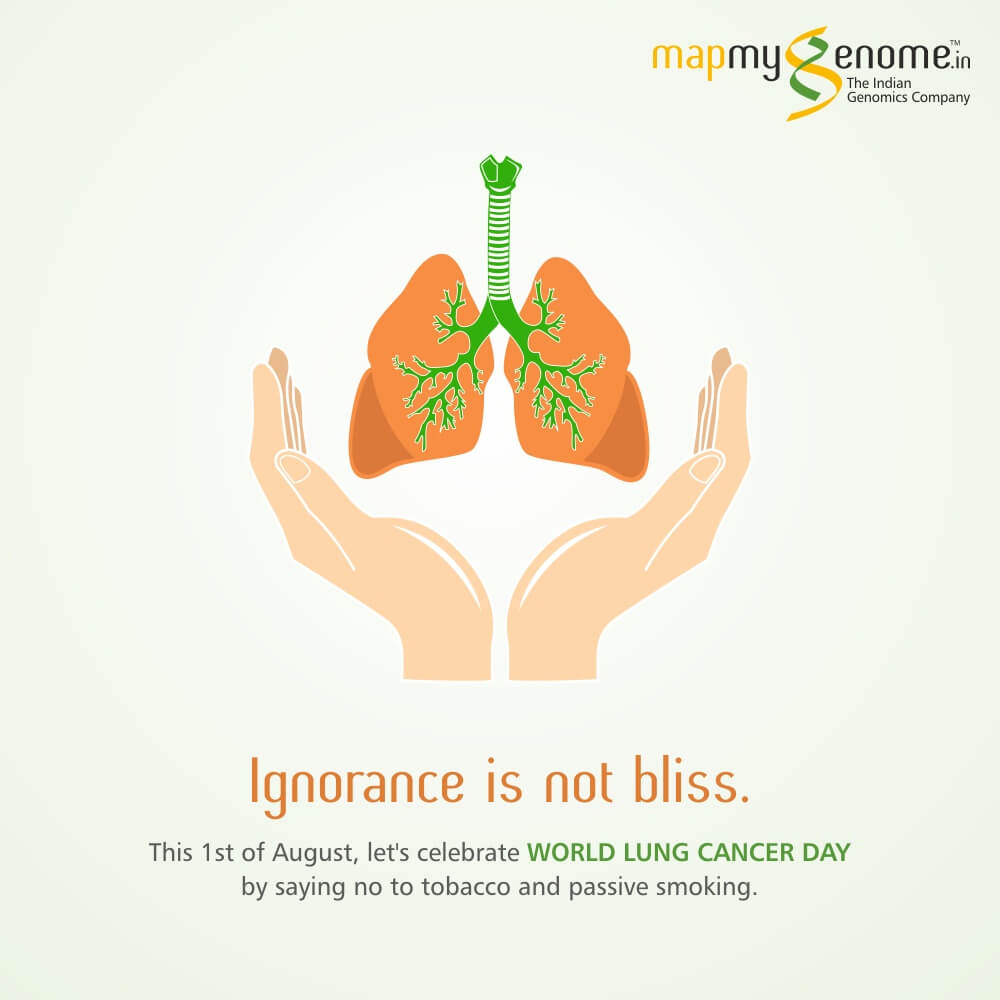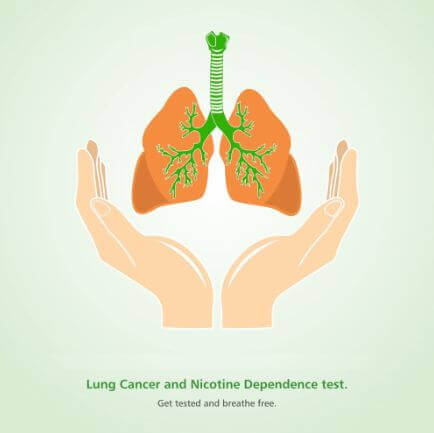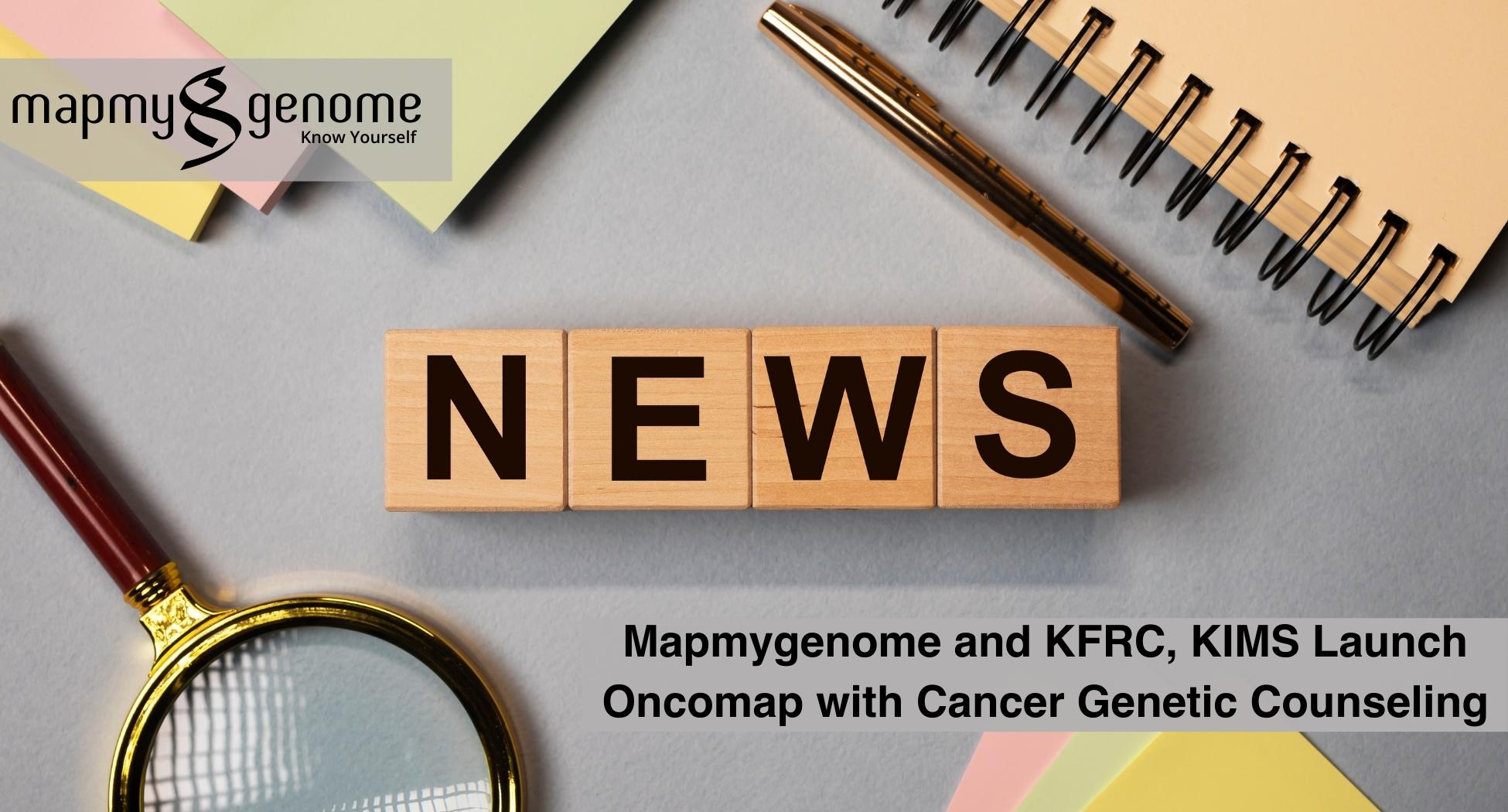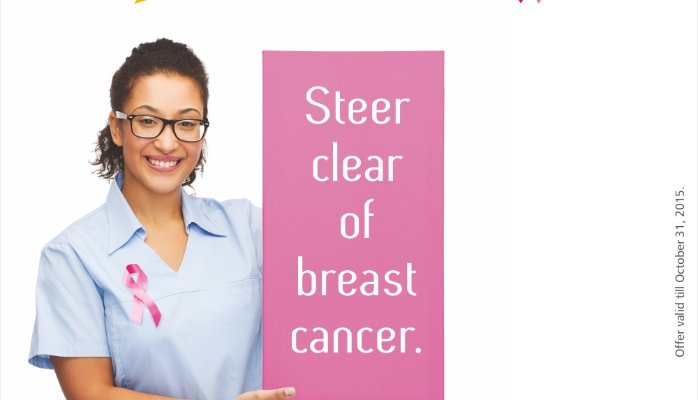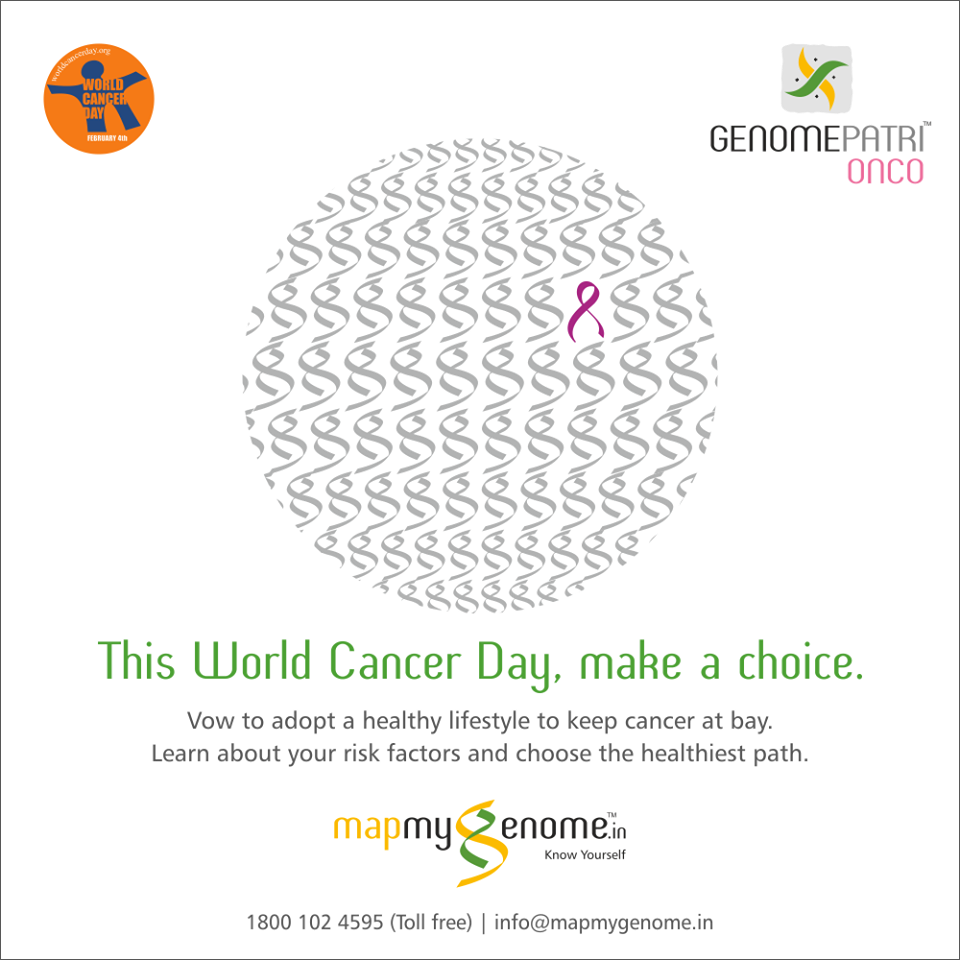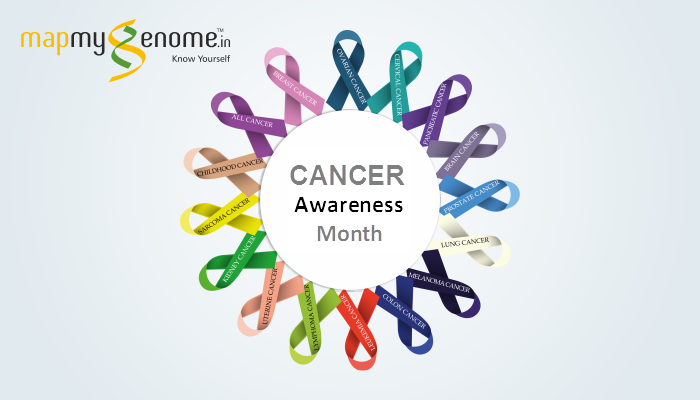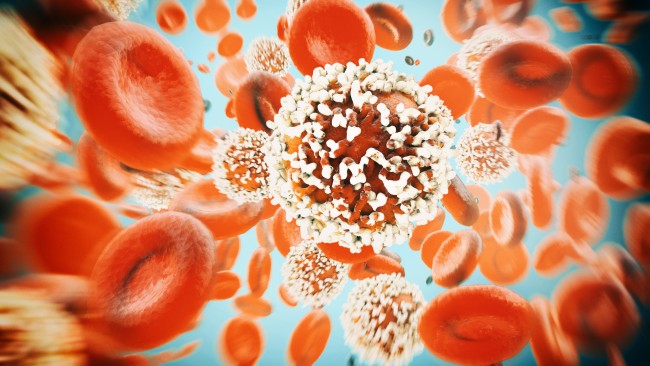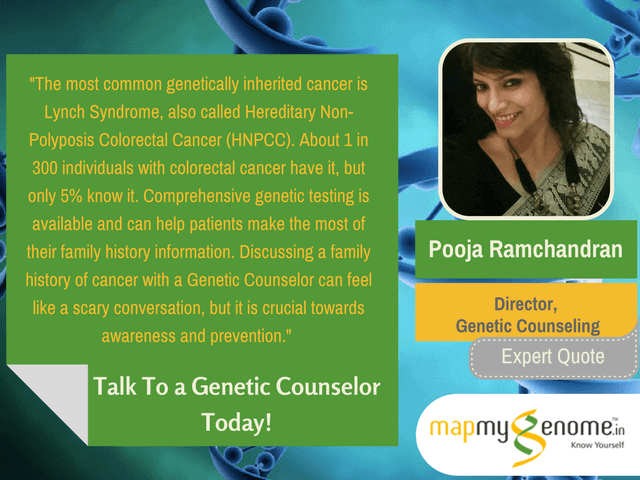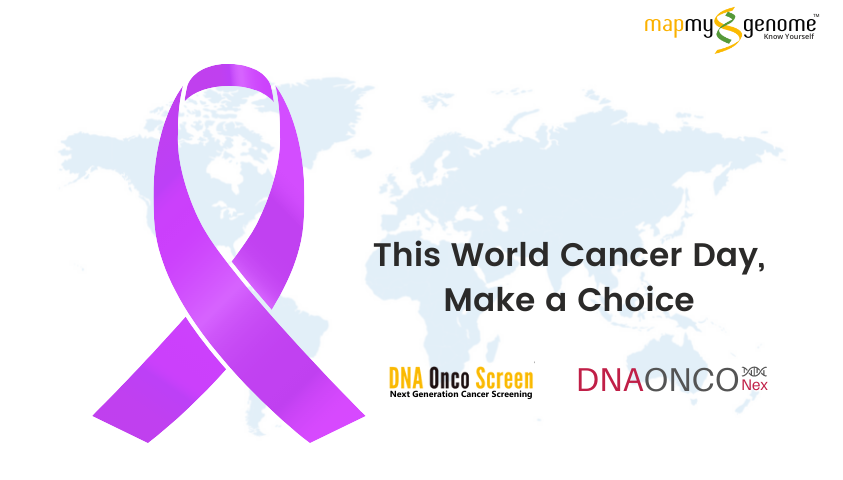
More than 70% of the cancer cases present in advanced stage accounting for poor survival and high mortality. About 6% of all deaths in India are due to cancers which contribute to 8% of global cancer mortality” – Department of Surgical Oncology, Asian Institute of Oncology.
The new generation is more likely to face this disease, how are we preparing for it?
30 - 50% of cancers can currently be prevented by avoiding risk factors and implementing existing evidence-based prevention strategies.
Personalized medicine has brought a revolution in the healthcare sector. A significant proportion of cancer cases is due to gene variations (mutations) which could be inherited or acquired. For optimal patient care, medical practitioners and oncologists seek root-cause analysis through molecular diagnosis or DNA testing. This would help reduce the burden of multiple trial-and-error cycles of chemo. An added benefit would be the implementation of effective screening protocols to identify family members at risk, before they develop the disease.
How does that specifically help in Cancer-related conditions only?
The risk assessment strategies offered by genomics companies are multidisciplinary. Preventive screening for cancer is performed by checking for the presence or absence of specific changes in the genetic material (DNA) and mapping it to a reference database. In certain cases, if multiple genes are to be screened, the individual’s exome (complete sequence of protein-coding DNA) can be tested. However, a clinical confirmation for hereditary cancer syndromes would require a test with targeted and high-precision analysis. This is done by analyzing the tumour tissue (biopsy) for mutations which occur during the course of cancerous cell multiplication. Known as somatic mutation testing, this method helps tailor chemotherapy for patients. The cells which express such mutations can be killed by specific antineoplastic compounds.
Are there any issues in the field? What should the “common man” be aware of?
Some of the current challenges in this field include the availability of genetic counselors, and most importantly, access to testing options. While the former can be addressed by a radical change in the education patterns for geneticists, genomics companies are fast emerging in the latter. Their key focus is to provide end-to-end solutions to cancer-affected families which include clinical translation of genetic data. Given the complex nature of cancer genetics, a proper understanding of the requirements of every cancer patient is essential. The biological manifestation of tumor in a patient changes rapidly and constantly, to the extent wherein the roadmap to therapy becomes an uphill task. This is where personalized genomics can help, by facilitating the timely detection of cellular changes, the degree of progression and scope for survival.
And…what about the present scenario in India? Is it time to panic…
Cancer mortality has dramatically increased in India. Over two decades, our country has witnessed a 42% increase in a number of cancer-related deaths. Families grapple with tremendous pain and the road to recovery is a long (and sometimes, uncertain) one. Genomic science can be more than a mere light at the end of the tunnel, by serving as a beacon of hope right from the beginning, via early prognosis and management. By finding the right space for DNA testing in the healthcare paradigm, a radical change can be witnessed in cancer management.
What are the small bits that one can look out for?
Exercise Regularly!
Maintain a healthy body weight!
Avoid Binge drinking of alcohol
Say NO to Smoking
How does Mapmygenome fit in this picture? How are we contributing …
DNA Onco Screen is a comprehensive cancer screening for cancers with a combined biochemical & genetic risk assessment (<700000 markers across the genome). DNA OncoScreen helps understand the lifetime genetic risk for a wide spectrum of cancers, early detection thereof, and a roadmap to a more personalized, precise and preventive cancer management strategy.
The DNA-based test assesses your genetic predisposition to 15+ cancers, physiological traits that can contribute to the risk of developing cancer. The test covers risk assessment for Colorectal Cancer, Lung Cancer, Prostate Cancer, Pancreatic cancer, Breast cancer, Bladder cancer, Melanoma, Renal cell carcinoma, Ovarian cancer, Basal cell carcinoma, and more. The biochemical markers help understand the current health status.
Post the test, our team of board-certified genetic counselors peruse through it and collate it with your health history, family history, current medical conditions/clinical parameters, and existing lifestyle, to better assess your overall risk quotient. The counselor then explains the primary report and offers advice, answers queries on key issues, during an extensive one-on-one session, and this information is then provided as a secondary recommendations report. As can be seen, combined with genetic counseling and/or nutritional counseling, these tests have the potential to change your lifestyle, save on healthcare expenses and help you plan for proactive living at work.
DNA ONCONEX is a Comprehensive targeted Next Generation Sequencing (NGS) assay for 223 Genes. NGS assay offers the identification of numerous novel genetic aberrations and associated potential therapeutic targets in many cancers. Targeted gene sequencing panels are useful tools for analyzing specific mutations in a given sample. Focused panels contain genes specific to the disease or phenotype under study.
DNAOncoNex Offers insights into the molecular underpinnings of the associated tumour mutation genes. With targeted therapies becoming the new standard of care in oncology, the NGS-driven diagnostics approach provides the selection of therapy to optimize patient outcomes in the future.
Panel covers - Head & Neck Cancers, Lung Cancer, Thyroid Cancer, Esophageal Cancer,
Are we the only ones worried – trying to create awareness? Apparently not…..
4 February is observed as “World Cancer Day”
People around the globe are making an effort in their own small way. Families teach their kids, educational institutions via presentations, some people even through bake sales and donating hair! Scientists are making breakthroughs every year, giving people a shot at the best treatment possible. One has to simply learn from the tumor sometimes – we simply cannot give up. We will and CAN CERtainly beat it!

